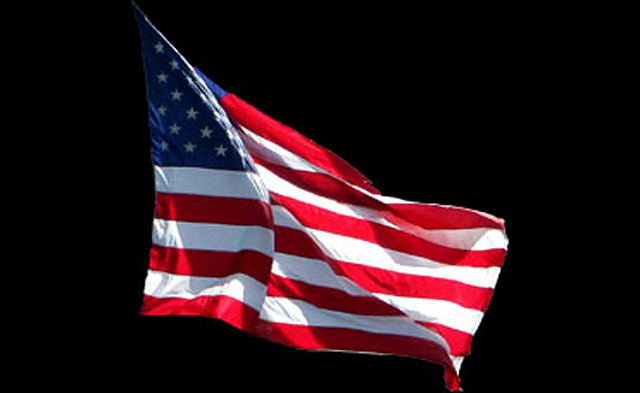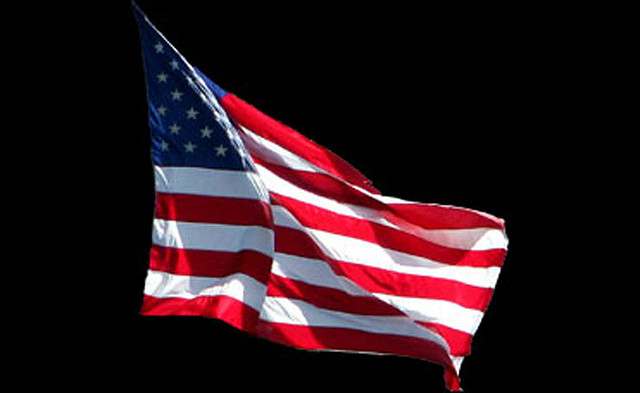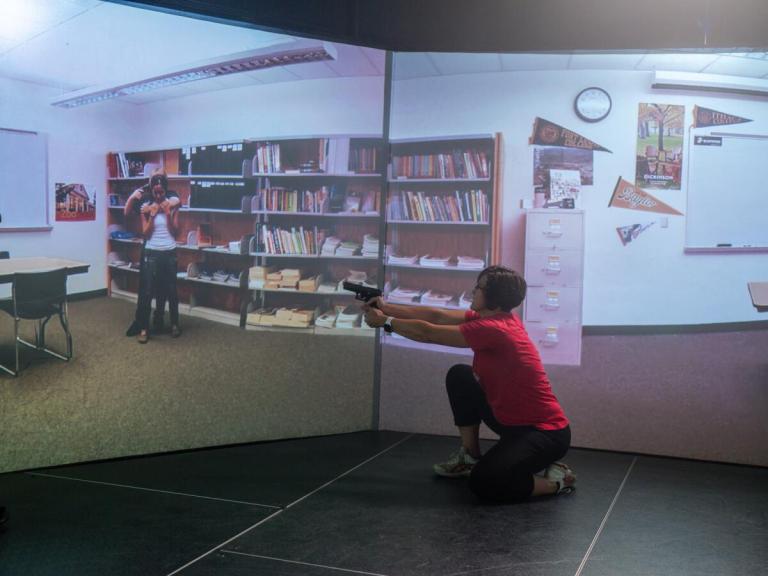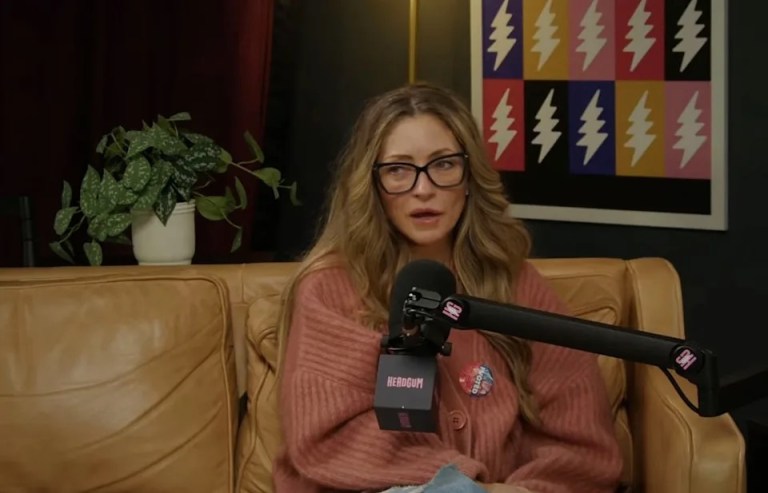
18 People On Things They Want Changed In America
By ![]() Michael Koh
Michael Koh

1. Kyle Pennell
I wish we had a travel/backpacking/gap year culture like Australia, Scandinavia, Canada, or Germany.
Long term travel (6+ months) changes people. It generally makes you more open, creative, tolerant, flexible, a better dancer (likely), a better lover (likelier), resourceful, multi-lingual, adventurous. The list goes on in IMO.
Anyone who’s gone backpacking knows that even in Mexico you’ll meet more Canadians (pop 35M) than Americans (pop 319M). That’s sad.
If Americans traveled even half of what Australians did, this country (and world) would be better.
2. Emily Smith
I would change American culture’s tendency to think of everything in terms of consumerism.
- I am not a “health care consumer” — I am a patient.
- I am not a “consumer of higher education” — I am a student.
- I am not a consumer of the services of government and elected officials (or an inferior non-consumer because I cannot donate to campaigns or voted for another candidate) — I am a citizen and a constituent.
Americans are steeped in the paradigm of consumerism, but not all relationships can or should be reduced to the transactive nature of provider/consumer relationships.
3. David Muccigrosso
The way we accept being lied to on a daily basis by advertisements, politicians, retailers, and so on.
Turn on the radio, and 90% of the advertisements you hear are flat-out lies. Dick pills? Bullshit. Diet pills? Bullshit. Five thousand over Kelly Blue Book for your trade-in? Bullshit.
Check your email inbox, and 90% of it is lies. You can save money by switching to the Charter Bundle? Bullshit (Hulu and Netflix + broadband are cheaper than broadband + cable). A Nigerian prince has a million dollars with your name on it? Bullshit. There is a great part-time online job waiting for you that you can do from the comfort of your own computer, set your own schedule, and includes “mostly survey completing and data entry”? Bullshit.
Turn on the TV, and 90% of what’s on there is a lie. Reality shows aren’t scripted? Bullshit. Clean & Clear will get rid of your acne? Bullshit. Obama’s coming to take your guns away? Bullshit. The Jonas Brothers are virgins? Bullshit (*as much as I hate to admit it, those wimps probably get mad groupie tail*). You have anything beyond a remote chance at winning the $500 million lottery? Bullshit. You can make $50,000 a year on real estate working 4 hours a week? Bullshit.
We accept so much bullshit in our everyday lives, and it wastes way too much of our time. I’d like to change that about America.
4. Dan Holliday
- Resistance to a single-payer health care system. I think this would immediately deliver financial results both for American corporations (who are saddled with HC costs that make them less competitive against other nations’ companies) and it would hold health care costs down (as it does in France and Australia). It’s been said that the USA doesn’t have a balanced budget issue, we have a health care issue. If you look at the numbers, you realize that so much of the American debt problem and our government spending is directed at medical care. Control that and suddenly things look a lot better.
- Looking backwards & American Exceptionalism. Before World War II, the USA was a forward looking nation. We didn’t have too much “greatness” in history to brag about. We didn’t exactly “save the world” in World War I. We were simply a forward looking “new” nation who was obsessed with meritocratic entrepreneurialism. Since the end of World War II, the USA has been fixated on our “innate greatness and exceptionalism” and it’s hurting us. The “our way or no way” mentality is garbage. If our greatest days are ahead of us, then we should stop obsessing over the greatness that’s happened before us as if it made us better than others.
- Fear of good government. A good government doesn’t manage people’s lives, it manages massive events and entities. The net effect is — that at times — lives do get managed. A great example is our fear of allow the government to control commercial adverts that push junk food (especially on kids). “It’s social engineering” and “It’s the nanny state!”. No it’s not. It’s respecting that EVERYBODY even companies have to take their hands off the American people and the American family. Our government’s job is to protect Americans from all enemies, foreign and domestic. We have a slow rot in this country because ever increasingly, companies are encroaching into our lives and into our foods. “We the people” band together to get things done in an organization called “Government”. It’s job is to act on our behalf to protect our interests. It is IN our interest to control the destructive nature of some short-sighted and selfish companies from harming the American people. We’re so focused on government tyranny that we’ve ignored the growing corporate tyranny on our doorstep.
5. Sanjay Sabnani
I do not like our two party political system because it doesn’t work. Right now you have to be rich or sponsored by the rich to ever have a chance of getting elected and then you have to kiss ass to the bureaucracy within these two groups. I would like more choices, or heaven forbid- the prospect of online elections where a new breed of candidate can win.
6. Christopher Reiss
I’ll add – I wish we’d stop caving to terrorists.
I just got back from a concert in Boston, and my backpack was taken away. You can’t bring a backpack to any crowded event in this city. (The marathon bombs were in backpacks.)
There’s no need for it. Or to take off our shoes and belt at the airport. To tap our phones. To lock people up without due process.
We are all reasonably safe. It’s our democracy that’s in danger.
7. Jill Uchiyama
The service industry.
Having lived in Japan for awhile, I was always super shocked by the level of service in our restaurant and hospitality industries here in the U.S in comparison with the Japanese level of superior service, probably some of the best found in the world.
In Japan you can be treated like an empress at a place like McDonald’s – where the cashiers bow and recite the most impeccable spiels with near military precision that take care of every single moment of your experience. They want to make sure you have everything you need and practically present your food to you with Vanna White perfection. I have to admit, I got used to this over there.
Contrast this with the American service industry:
I am transferring planes in Dallas and go up to a taco stand.
The girl saunters over to me with eyes rolled up to the ceiling and a kind of threatening posture. She reminded me of one of a school bully – like she might lean over and spontaneously pinch me. I was a little afraid of her. She said in a very irritated voice, elongating her vowels in a Southern drawl:
“Can I help youuuuu?”
Her eyes told me that she hated me. She was pissed to have to work at all and I was just another fool in her life that mucked up her day. I was a customer and that irritated her. I had no internal life. I was some kind of plastic person who had no heart or childhood or soul. I was an obstacle. Another stupid task to get rid of as soon as possible, in the midst of her miserable day job.
I gulped and sheepishly ordered a taco, almost apologetically, as if to say, I’m sorry that I exist right now in your field of vision, but I’ve been traveling for over 10 hours on a plane and really could use some sustenance.
The girls in the back were talking about some asshole guy that screwed one of them over – pure hatred that went straight into my taco along with the tomatoes and cheese, my day’s nourishment. The girl in the back sloppily folded the taco and wrapped it messily in some wax paper. The bully girl came back to me and casually and absently tossed the bag my way. I grabbed the soiled bag and left feeling depressed.
That kind of sums up my feeling about the service in my country. A lot of the time, I feel like I’m just bothering waitstaff. It is very very rare that I find a really good waitress or waiter that cares about my dining experience.
Sigh. I’m getting indigestion from just writing about it.
8. Miguel Valdespino
I’d change the voting system to one of the plurality voting systems. Our current “majority-rules” system not only encourages two parties, it encourages the party in power to move farther to the extremes. It discourages centrist candidates and it discourages centrist ideas.
In a plurality system, most people wouldn’t get the candidate they prefer, but they’ll get a candidate they feel okay about. It also allows multiple parties to coexist. You’ll have the option to choose a party that better fits your desires.
I know a lot of people that don’t quite fit with either party – a fiscal conservative that is pro-choice, pro-gun and supports gay marriage doesn’t feel comfortable in either party. And many people don’t have an extreme view on other issues. For example, most people I know think that there should be some gun laws. Not many are in the extremes of banning all guns for everybody or allowing everybody to carry any gun at any time. (Not that I haven’t met the extremes, but most people are somewhere in the middle). Likewise on many other issues.
9. Mike Laursen
That prominent figures should feel shame when they do something wrong.
Not just a press conference where the person drags his wife up on stage to stand beside him while he reads a prepared speech saying how sorry he is, but true shame. Somehow, we’ve evolved an American culture where, say, a billionaire investment bank CEO can land with several million dollars in stock options after driving his firm into the ground with poor risk management, and instead of feeling ashamed he writes a book about it.
(This idea didn’t originate from me. Economist Russell Roberts has put forth this idea several times on his podcast, Econtalk. I’m repeating his idea here, because I think he has a good point.)
10. Thomas Goodwin
1. Attitude towards “vacation” and “always on” work.
I admire the Puritan spirit of America and the determination to work hard, but as the economy rightly moves away from “effort” based jobs like manufacturing and more cerebral and creative professions, the importance of quality of time not quantity of time seems to be required.
Working in the USA I am amazed at people’s needs to be demonstrably working about 18 hours per day and it creates two things.
- People often waste a lot of time and energy by responding quickly to things and by “keeping people in the loop”. So emails flashing around at 11pm on a Thursday about a meeting on the next Tuesday is quite frankly a pathetic waste of time because people are keen to show they are working. Why people can’t wait and discuss it the next day in person kills me.
- Quality of thought in creative endeavors ALWAYS beats quantity. We need to not be afraid to tune out and visit a gallery in order to come up with the good quality 2 hours thinking that can save 1000 hours of crap thinking and working towards something good. Let’s take a nice 2 week break at some point in the year, turn off email, VERY few people are so important that it’s impossible to find a way to manage this with notice, and if you are that important, that maybe something is wrong. Take that 2 weeks, get some perspective, set some goals, evaluate your life and maybe make some big decisions and see the light!
2. Acceptance of macro corruption.
I love many things about being here but Americans need to be really careful about the degree to which their national and personal interests are being swayed by those with the money and Influence.
When federal money is used quite so liberally to subside oil companies to drill hopeless discovery wells in Alaska because they can claim back 80% of costs, something is wrong.
When the richest are paying income tax only as carried interest at 15% and nobody seems able to even THINK about changing that, it seems a shame. Most countries would not be prepared to accept this level of self interest, they do accept it in other places, but nothing like the same bare faced cheek shown in the US.
3. Elevation of religion into education.
Creationism is taught in some states. End of comment.
4. Spiteful Politics.
It’s really embarrassing to see the system of government “work” how it does, if a any other body of decision making acted this way, people would be astounded.You can’t use the threat of a government shutdown as a way to get things decided.
11. Yvonne Caruthers
I’m surprised no one has said this yet, but the biggest thing I’d like to change is our love of guns and violence. The Navy Yard shootings made me realize how immune I’ve become. I wasn’t surprised or shocked or upset when I heard the news, it felt like “one more.” The same way you’d feel if it rained all week and you woke up and it was raining again. You’d say “oh, it’s raining again” and that’d be the last you’d think about it all day.
Years ago I had a friend who lived in London during the peak years of the IRA bombings. She said after awhile “you just get used to it.”
When I hosted an Australian couple back in July they said they almost hadn’t come to the US to visit because they don’t understand our “fascination” with guns. After a mass shooting in Australia, everyone had to turn in their guns, and the sun still came up in the east the next morning….life went on, but less violently.
I’ve heard all the arguments on both sides, and I have no illusions that anything I say is going to change the views of anyone else, but the current state of affairs is deeply tragic.
12. Alia Caldwell
Where do you start?
- The US military has to pull its head in and stop invading countries to get political control over their assets. When you go to war for your country and die on foreign soil, you’re fighting for Halliburton and all the other companies owned by elites. That should worry you. Responsible countries don’t launch wars of aggression. People don’t sacrifice their lives for business interests.
- The US has to stop putting disadvantaged people in prison. A society that fosters consumerism and generates poverty is not one that should criminalise desperate consumerist behaviour. The solution that any decent society would find to this problem centres around eradicating poverty (and de-emphasising consumerism). Some countries have achieved this. Denmark has 59 people in prison for every 100,000 citizens. There is virtually no poverty in Denmark. The US incarceration rate is 10x that, heavily skewered towards the poorest populations: Blacks and Hispanics.
- The US has to stop handing out public money to large private companies which have execs on 7 or 8 figure salaries. Small companies do not get bail outs when they mismanage. There are huge differences as to who reaps what in the US. In 2009 the banking system was on the verge of collapse. The tax payer bailed out several of the largest financial institutions (Citibank, B of A, etc). The same has happened with automobile manufacturers, mortgage lenders and insurers. All profits from these sectors accrue in private hands, all losses fall in the lap of the public purse. Meanwhile those who benefit most from this disparity fight tenaciously for less regulation and less government intervention in the marketplace, allowing them greater licence to gamble and profit with fewer repercussions.
- It’s time to amend the amendment. US citizens cling tenaciously to the right to own firearms, a legacy from its wild west past. People carry guns to protect themselves from other people carrying guns. All the while the self-perpetuating insanity of this proposition eludes them. Killing sprees from lunatics with semi automatic weapons? Really? What sort of civilian needs a semi-automatic other than a criminal? Get rid of guns and you will feel a whole lot safer than you do packing heat.
- Fix health. It is broken. Expensive and inefficient. And medical workers need crippling insurance policies just to guard against lawsuits. The US should remove the right to sue doctors for medical mishap. Medical misadventure should be judged by a medical disciplinary council who take punitive measures against negligent health care workers, not by the courts. A public insurer should compensate victims.
- Fix education. It is broken too.
- Start caring for disadvantaged citizens.
- Stop worshiping mammon.
- Fix the election process. Only multimillionaires can be presidents—you might as well go back to Kings and Dukes. There is nothing particularly democratic about US democracy in it’s present form—your voting choice remains Tweedle Dee or Tweedle Dum, both of whom live in mansions.
13. Leonard Kim
A movement towards American Manufacturing and away from foreign goods.
It seems that many consumers in the United States just want the best deal and don’t really care where items are made.
If we could bring a focus back to creating high quality American goods, I believe our economy would flourish.
American manufacturing would create jobs for many talented people out of work. Alongside of job creation, we would be able to control the workmanship of the items we produce. Instead of having money move outside of our country to flourish the pockets of Manufacturing facilities outside of the United States who dish out flimsy products, e.g. China, then many of the jobs that were once lost will be reclaimed.
Other countries would then become dependent on America for high quality goods, as opposed to the alternatives. Also, the nationalism of the country would grow and our communities would be more united to helping each other.
If a focus is made to create socially responsible companies, we could also implement programs to help feed and clothe the people right here at home, who are suffering from financial difficulties, or even homelessness.
Overall, everyone in the country would benefit greatly. But then again, this is just a theory. Who knows how it would work in real life.
14. Hemanth Kumar Thangudu
Culture, not policy.
I’d strive to create a culture in which knowing your neighbors is normal.
I’m not a communist. I’m an optimist. It strikes me as odd that many people don’t know their neighbors in the USA.
15. Alex K. Chen
The obsessiveness with jobs/employment.
Seriously. You don’t need to have a job/be employed to have a fulfilling life.
16. Bryce Johannes
For me the change would be simple:
That we the people realise we don’t have what the myths say we have and demand that we get it.
- We should demand Freedom. Real freedom. Freedom of religion. Freedom of speech. Freedom (as FDR said) from want and freedom from fear. Freedom to be individuals not conformists that are easy to rule over and to sell to, melting together into a uniform blob. Even freedom to own weapons, not to protect ourselves from our government or from each other (sure signs that the society isn’t mature enough for guns), but for recreation, to sustain and explore traditional lifestyles and perhaps even simply because it used to be the domain of the elite only.
- We should demand opportunity. We should demand the American Dream: that anyone willing to work hard should be able to do what they love, live comfortably and without fear of losing everything in the next Capitalist bubble. We should demand an end to the entitlements of the wealthy, feeling they have a right to power, wealth, security, opportunity not from hard work but by virtue of their wealth. We should demand an end to the race to the bottom where states compete with each other and other nations to see whose people are willing to give more to enrich the rich. The wealthy too should demand to be allowed back into the human race, not compelled to behave inhumanely in exchange for security that is anything but secure.
- We should demand to be exceptional. We should demand a genuinely new and innovative form of government that isn’t just more of the same going back to the beginnings of civilisation. We should demand government of, for and by the people. We should demand that nationalism and patriotism not be used as tools of oppression but an expression of identity only for those that choose to associate with the national traditions and the identity they imply. We should demand that our government not put our security at risk in service of the elite and then use insecurity to deny us freedoms.
- We the people should return to how we were in the early 18th century, only more confident that we can be a great society. At the beginning of the 1700s places like Boston and Philadelphia competed with Europe not in terms of the greatest mansions and palaces for the wealthy, but in how they made sure the greatest number of people had opportunity to pursue their dreams with clean cities, strong public infrastructure, plentiful opportunity and a strong safety net. The people of the founding generation (not the fathers, the people themselves) knew that the government introduced by Hamilton and Madison was of, for and by the elite. In those days it was the landed elite of the south and the merchant elite of the north, but elitist as much as the aristocrats of Europe and almost as much so as the capitalist elite of today. It’s why they refused to fight in the war. The army had to rely on new immigrants, freed slaves and convicts to fight, and of course the might and resources of the French. Hamilton admitted clearly in the Federalist Papers that the government would be of the elite, but that they could be trusted to act benevolently. The people knew better. The government was designed to prevent the people from challenging the power of the elite, it was worked wonderfully. When the opportunity came up the people headed west (to places like Tennessee) where they opened up the political system briefly to the people (expanding the right to vote beyond the tiny percentage that could vote early on). Then as the elite moved west the people moved further west, leading to the Progressive Era that pushed back the blatant and open rule by the elite of the robber baron era. It was a time when the people again made headway until the elite leveraged the Great War to shut the people down. In each case the elite quickly responded and closed down any real government of, for and by the people, a myth that wasn’t introduced until Lincoln, a bit of revisionist history nearly 100 years after the founding of the country (nearly a hundred years of bonded slavery mixed with wage slavery).
- We were the land of opportunity first because of the land we took from the original inhabitants and second because the manufacturers in the east needed to attract Europeans to the continent to lower the cost of labour (forcing more people into desperate poverty). So we became the “Land of Opportunity” (TM) as part of a marketing stunt to trick people into working hard to enrich the rich. Canada was the land of the free, where people wished to escaped to in order to get away from the enslavement of the United States.
- We the people have power now but we’ve fallen for the myths and so are still controlled. If we realised that we don’t have what we’ve been told we have and demand that we get it (and work together to develop it) we can change the world. The elite in their over-confidence have given us that power, knowing we won’t use it. But the elite are us too, lost to the manic logic of our economic system.
- We would, of course, have to invent a new form of government, invent a new form of economy and rediscover our humanity, but it would only mean being who we say we are. That is all it takes. And then, I think, everything else listed in the other answers takes care of itself, just as a matter of course.
I am not sure what the confines of “culture” are so if I’ve strayed too far, I apologise.
17. Andy Cheung
I would instill a greater understanding of the world’s religions outside of Christianity.
I would want every American to have a basic awareness that Christianity was just one of many different faiths practiced around the world, and that in fact Christians represent a minority of the world’s population. And that adherents of those religions were also here in the States. And that the people who practice those religions should not have to live under policies formed from the framework of particularly Christian morality.
Furthermore, perhaps if they understood that all Abrahamic religions involve the same deity, and that they share many tenets, perhaps that would take some of the wind out of Fox News’ sails.
And finally, maybe they would stop confusing Sikhs with Muslims.
18. Charles Faraone
A good place to start would be for dramatic educational reforms that would help more Americans understand why the term “American culture” is an oxymoron.











